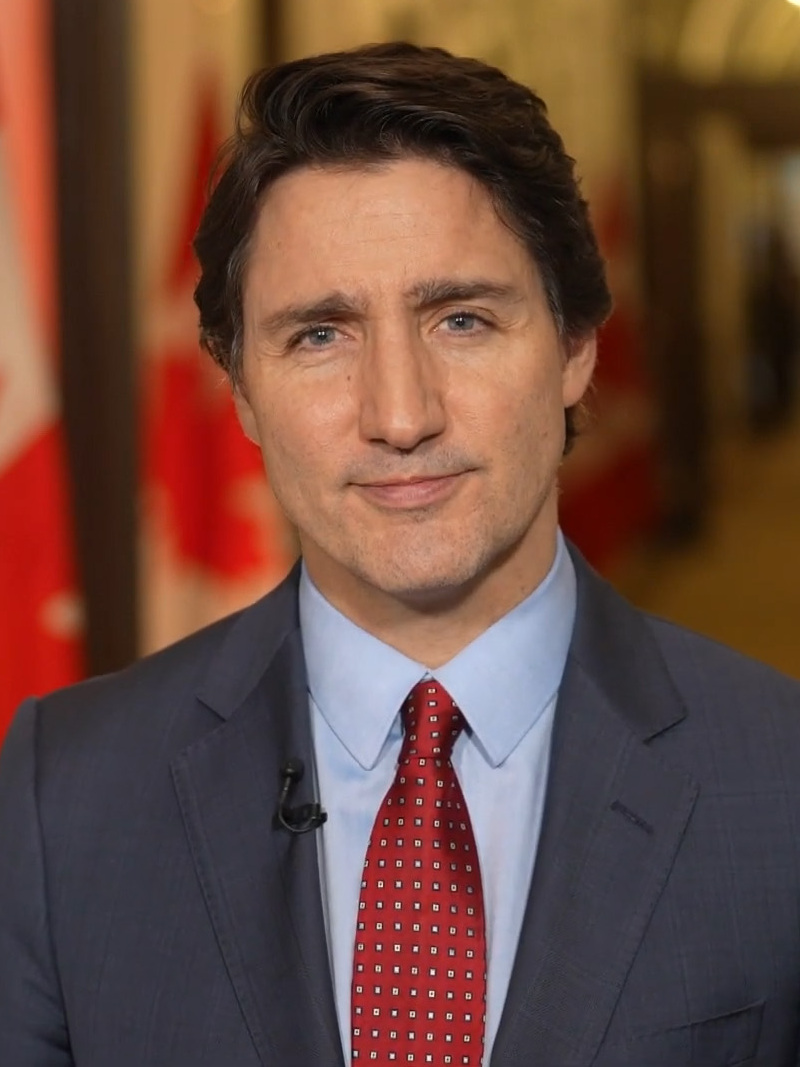Justin Trudeau
 Justin Pierre James Trudeau ; French: .}} (born December 25, 1971) is a Canadian politician who has been the 23rd and current prime minister of Canada since 2015 and the leader of the Liberal Party since 2013.
Justin Pierre James Trudeau ; French: .}} (born December 25, 1971) is a Canadian politician who has been the 23rd and current prime minister of Canada since 2015 and the leader of the Liberal Party since 2013.Trudeau was born in Ottawa, Ontario, and attended Collège Jean-de-Brébeuf. He graduated from McGill University in 1994 with a Bachelor of Arts degree in literature, and in 1998 acquired a Bachelor of Education degree from the University of British Columbia. After graduating, he taught at the secondary school level in Vancouver, before returning to Montreal in 2002 to further his studies. He was chair for the youth charity Katimavik and director of the not-for-profit Canadian Avalanche Association. In 2006, he was appointed as chair of the Liberal Party's Task Force on Youth Renewal. In the 2008 federal election, he was elected to represent the riding of Papineau in the House of Commons. He was the Liberal Party's Official Opposition critic for youth and multiculturalism in 2009; in 2010, he became critic for citizenship and immigration. In 2011, he was appointed as a critic for secondary education and sport. In 2013, Trudeau was elected leader of the Liberal Party, and led the party to a majority government in the 2015 federal election. He became the second-youngest prime minister in Canadian history and the first to be the child of a previous prime minister, as the eldest son of Pierre Trudeau.
Major government initiatives Trudeau undertook during his first term included establishing the Canada Child Benefit, legalizing medical assistance in dying, legalizing recreational marijuana through the ''Cannabis Act'', attempting Senate appointment reform by establishing the Independent Advisory Board for Senate Appointments, and establishing the federal carbon tax. In foreign policy, Trudeau's government negotiated trade deals such as the Canada-United States-Mexico Agreement (CUSMA) and the Comprehensive and Progressive Agreement for Trans-Pacific Partnership, and signed the Paris Agreement on climate change. He was sanctioned by Canada's ethics commissioner for violating conflict of interest law regarding the Aga Khan affair, and again with the SNC-Lavalin affair.
Trudeau's Liberal Party was reduced to a minority government in the 2019 federal election. His government responded to the COVID-19 pandemic, announced an "assault-style" weapons ban in response to the 2020 Nova Scotia attacks, and launched a national $10-a-day child care program. He was investigated for a third time by the ethics commissioner for his part in the WE Charity scandal, but was cleared of wrongdoing. In the 2021 federal election, he led the Liberals to another minority government. In 2022, he invoked the ''Emergencies Act'' in response to the Freedom Convoy protests and responded to the Russian invasion of Ukraine by imposing sanctions on Russia and authorizing military aid to Ukraine. His party signed a confidence and supply agreement with the New Democratic Party (NDP) in early 2022, which resulted in the enactment of Canadian Dental Care Plan for residents that meet a certain income threshold and a framework for national pharmacare; in late 2024, the NDP opted to terminate the agreement.
Following the sudden resignation of deputy prime minister Chrystia Freeland in December 2024 and an ensuing political crisis, Trudeau announced on January 6, 2025, that he would resign as both the prime minister and leader of the Liberal Party. He advised the governor general to prorogue parliament until March 24, while the party holds a leadership contest; Trudeau will remain leader until a new leader is chosen, after which he will resign as prime minister. He will also retire as an MP when the 44th Canadian Parliament is dissolved. Provided by Wikipedia